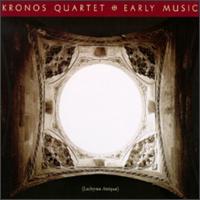J.G. Ballard (15 November 1930 – 19 April 2009)

The following excerpts I transcribed from Eleanor Wachtel's 1993 interview with Ballard for CBC Writer's & Co.
"People in the west, in particular, Western Europe, Canada and the United States -- for all the civil unrest you find in places like Los Angeles and Northern Ireland and so on -- we lead extremely stable, settled lives. We're certain that, on the whole, our fabric as a society that we live in is not going to be torn to shreds overnight. Governments may change, but basically, our way of life, and all the civilities of our way of life, remain intact. Now, in Shanghai, first in 1937 and then of course in an even bigger way after Pearl Harbour in December 1941, everything came to an end. The comfortable country club existence that I and my parents led, protected by the wealth of the Europeans and Americans, ended absolutely, and suddenly we were in as much danger as any beggar on the streets of Shanghai ... This was a profound lesson which I learned well. And I've never forgotten. Reality, even the most reassuring reality, was nothing more than a stage set whose entire cast and scenery could be swept aside overnight."
"The Doctor / Psychiatrist for the last forty or fifty years has taken the role of the priest, as the man who takes the spiritual pulse of the people at large, the man who prescribes for the spiritual ills from which people suffer, he enlists science for the aid of the soul ... I think the experience of dissecting a human cadaver is a profoundly moving one. There's no question that the whole process, day by day, of paring away the skin, separating the blood vessels and nerves, delving down through the muscles, laying bare the physical being that once walked this earth, is deeply moving, and is as close to a human being as one can ever get."

"We've shut our eyes to the dead in the West. In England today, most people have never seen a dead body. People don't die in the home anymore, for the most part, they die in hospitals surrounded by high-tech medical equipment, nurses and doctors screen the bereaved from anything more than a fleeting glimpse of the dead. And we've filled this vacuum in human experience and human grieving with a whole set of conventions: memorial services, and our way of remembering those close to us who have died, are really elaborate fictions ... Most of the people alive today in the world lead lives ... racked by civil war, famine, and destitution ... very much closer to what I described and what I went through in China during the war. Living in Canada, Western Europe and the United States today -- it is WE who are exceptions to the rule, and I think one should realise that fact ... I wouldn't say we're blinkered in any way, but we've chosen not to make too much of one of the most important ascpects of existence, and that is our finite lives."
"My characters embrace their own obsessions. They willingly endure anything to fulfill themselves psychologically. I feel this is what the human race is really about. That is how we find happiness -- by defining what our own mythology is, what our own obsessions are, and pursuing them whatever the cost. That's the only way to find happiness!"
"It's true, I do love writing about abandoned hotels and drained swimming pools. I wish I could write about nothing else! I feel an immense affinity with these states of mind -- it's obviously something that happened during the war, when indeed I did see a great deal of drained swimming pools and abandoned hotels, empty apartment blocks -- there is a sense that one is returning to psychic-zero. That everything can start again afresh is what draws me to these images. Because after all, a drained swimming pool can be filled. It's pulling the sock of reality inside-out. We are surrounded on all sides by a world that is totally conventionalized in our minds. We accept everyday reality, whether it's our own living rooms and kitchens, or the streets and offices we move through... and it's good to see everything inverted suddenly. It refreshes us. It's like walking through a deserted town. There's a mystery in the air! In fact, a deserted town has more psychological presense than a town that is full of people ambling about doing their pointless shopping ... It's true, I've gone to great lengths to avoid filling any of those drained swimming pools. One is the victim of one's own past. My fiction is a kind of modest attempt to make sense of the world in which I find myself."
-- J.G. Ballard R.I.P.













No comments:
Post a Comment